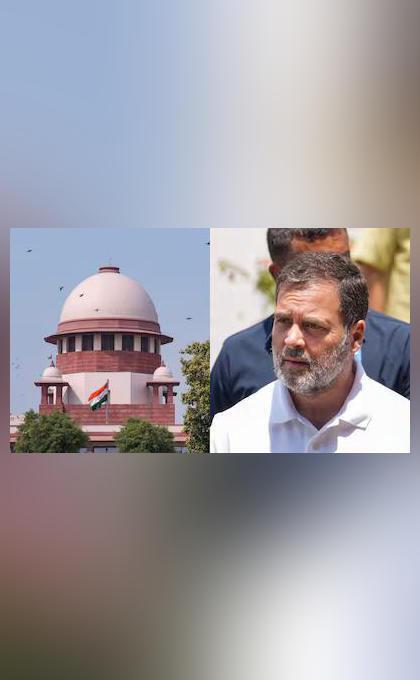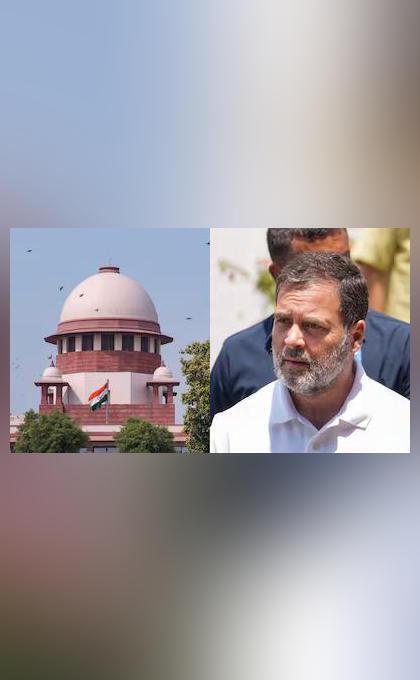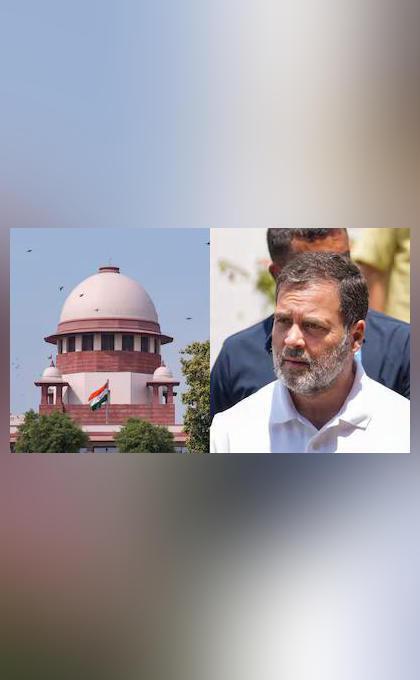
Why Ask on Social Media & Not in Parliament: SC to Rahul on ‘Land Grab’ Claim
Recently, the Supreme Court of India rebuked Congress leader Rahul Gandhi over his claim that China had grabbed 2,000 square kilometers of Indian land. The court’s stern rebuke came while staying a defamation case against Rahul for his remarks about the Indian Army. The court’s scathing criticism has sparked a heated debate about the role of social media in politics and the need for accountability in public discourse.
Rahul Gandhi had made the claim in 2020, sparking widespread outrage and concern about the country’s borders. However, the Supreme Court was not impressed with his statement, and in a hearing on Monday, the court asked Rahul to explain how he knew that China had occupied 2,000 square kilometers of Indian land.
The court’s question was a direct challenge to Rahul’s claim, and it highlighted the lack of evidence and credible sources behind his statement. The court’s skepticism was justified, given that Rahul’s statement was made without providing any concrete evidence or documentation to back his claim.
The Supreme Court’s rebuke of Rahul Gandhi is not just a personal attack on the Congress leader; it is also a reflection of the court’s concern about the misuse of social media in politics. The court has long been critical of the lack of accountability and responsible reporting on social media, and the Rahul Gandhi incident is a prime example of how social media can be used to spread misinformation and disinformation.
In recent years, social media has become a powerful tool for politicians to reach out to their followers and shape public opinion. However, the lack of regulation and oversight on social media has led to a proliferation of fake news, propaganda, and disinformation. This has created a toxic environment where politicians can make false claims and get away with it, as long as they have a large following on social media.
The Supreme Court’s rebuke of Rahul Gandhi is a reminder that social media is not a substitute for responsible journalism and fact-checking. Politicians must be held accountable for their statements, and social media platforms must take responsibility for the content they host.
The court’s criticism of Rahul Gandhi is also a reflection of the importance of transparency and accountability in politics. Politicians must be transparent about their sources and evidence, and they must be accountable for their actions and statements. The court’s rebuke of Rahul Gandhi is a reminder that politicians are not above the law, and they must be held accountable for their actions.
The case against Rahul Gandhi is not just about his statement on China’s land grab; it is also about the need for accountability in politics. The court’s decision to stay the defamation case is a reminder that politicians must be held accountable for their actions, and they must be punished if they violate the law.
The Supreme Court’s rebuke of Rahul Gandhi is a significant development in the ongoing debate about the role of social media in politics. It highlights the need for responsible reporting, fact-checking, and accountability in public discourse. The court’s decision is a reminder that politicians must be held accountable for their actions, and they must be punished if they violate the law.
In conclusion, the Supreme Court’s rebuke of Rahul Gandhi over his ‘China grabbed 2,000 sq km of Indian land’ claim is a significant development in the ongoing debate about the role of social media in politics. It highlights the need for responsible reporting, fact-checking, and accountability in public discourse. The court’s decision is a reminder that politicians must be held accountable for their actions, and they must be punished if they violate the law.



